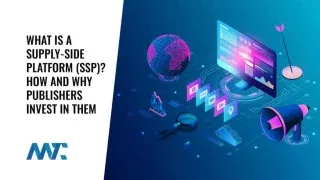PMP
PMP is the Acronym for Private Marketplace
A type of programmatic advertising deal where digital ad inventory is sold through an invitation-only exchange. Unlike the open exchange, where advertisers bid publicly on impressions, PMPs create a controlled environment that gives publishers greater oversight of which advertisers can access their premium inventory, and at what price.
How PMPs Work
In a typical PMP setup, publishers make their inventory available to a select group of advertisers via a demand-side platform (DSP). Advertisers bid in real time, but only within the rules and pricing structures negotiated in advance. This hybrid approach combines the efficiency of programmatic automation with the exclusivity and relationship-driven aspects of traditional direct buys. Often, PMPs are facilitated by supply-side platforms (SSPs) that manage publisher inventory and enforce deal terms.
Benefits for Advertisers
PMPs give advertisers access to premium inventory that is not available in the open market. This can include placements on reputable news outlets, high-traffic niche websites, or specialized apps. Advertisers also gain more transparency, as PMPs usually provide better insight into where ads are running, helping protect brand safety. Another benefit is reduced competition: since access is limited, advertisers face fewer bidders, which can improve win rates and targeting precision.
Benefits for Publishers
Publishers use PMPs to maintain control over their brand and inventory. By choosing which advertisers are allowed into their private exchange, they avoid low-quality ads or ones that might conflict with their editorial values. PMPs also help secure higher CPMs (cost per thousand impressions) because advertisers are often willing to pay a premium for guaranteed quality, exclusivity, and audience alignment.
PMP vs. Other Programmatic Deals
PMPs sit between open exchange and programmatic direct deals. Open exchanges are fully automated auctions with little control, while programmatic direct (or guaranteed) deals involve negotiated contracts for a set amount of impressions at a fixed price. PMPs strike a balance between flexibility and control by combining auction-based pricing with exclusivity.
Industry Trends
As concerns about brand safety, data privacy, and ad fraud increase, PMPs are becoming a preferred channel for many advertisers. They also support advanced audience targeting, often leveraging first-party data from publishers. With the decline of third-party cookies, PMPs are positioned as a strategic solution where publishers’ direct relationships with audiences become more valuable.
Additional Acronyms for PMP
- PMP - Project Management Professional



